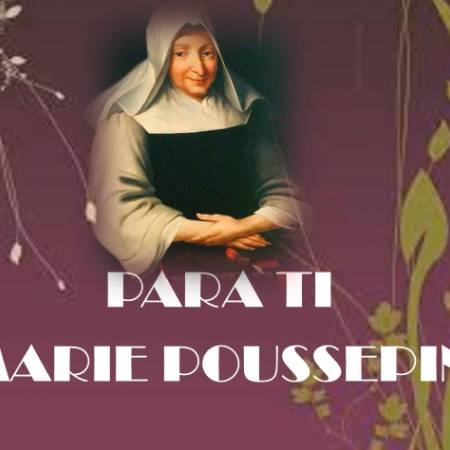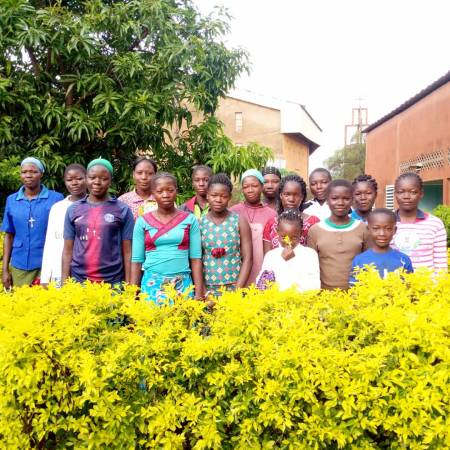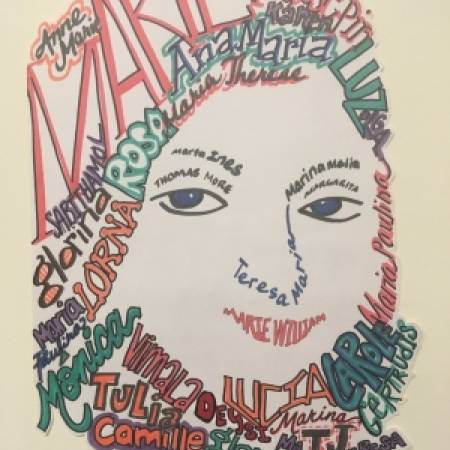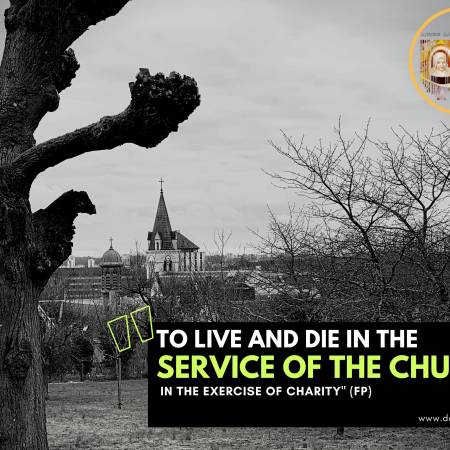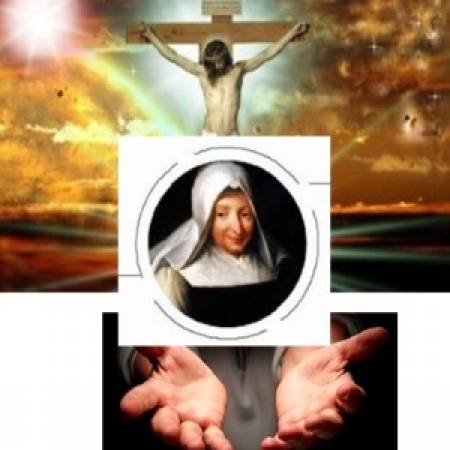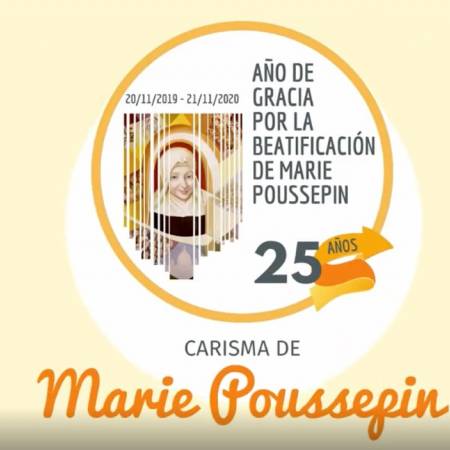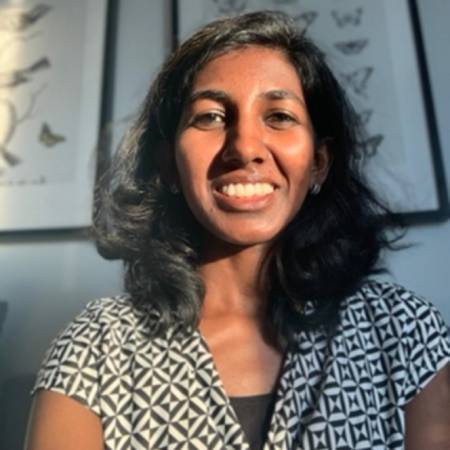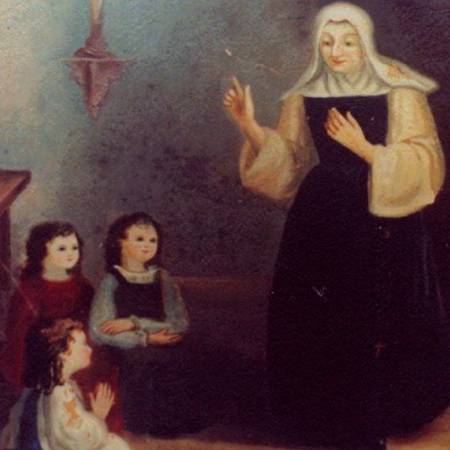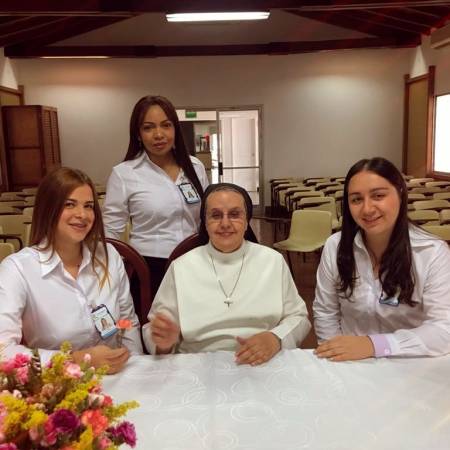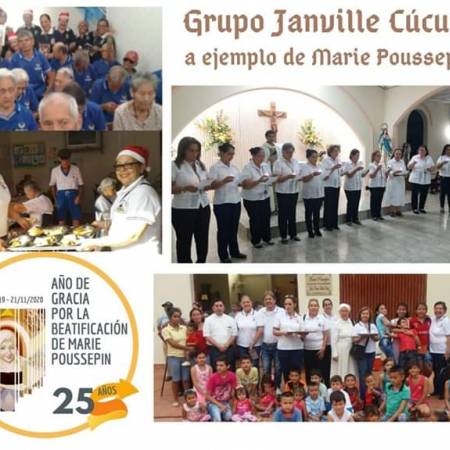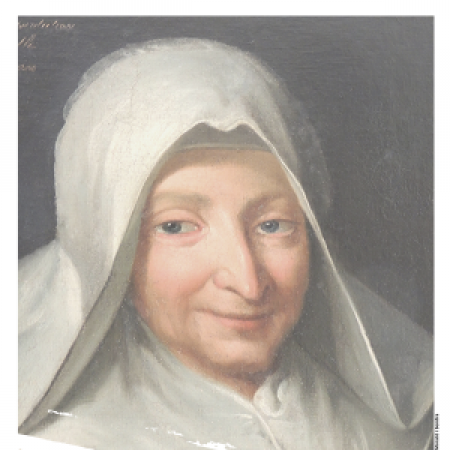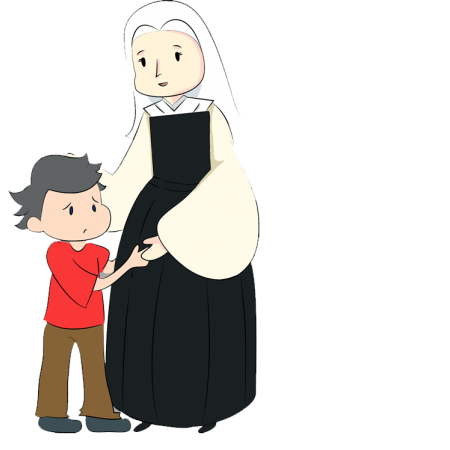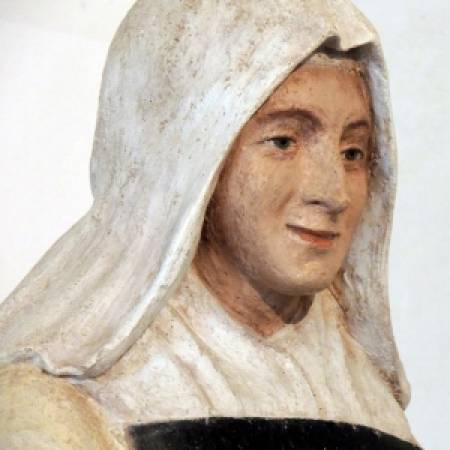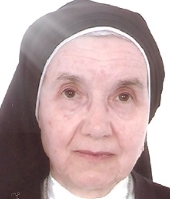DOWNLOAD IN PDF:
By SR. HENRIETTE MYRIAM (LEBANON).- This theme is as vast as the life of our dear Foundress. On January 24, 1744, the Master of the Harvest came to get his worker: MARIE was 90 years old. She had worked silently without looking for herself, walking simply, following the ways of God, with Rosary in her hand: she was only an instrument of the Providence of God. The time for this instrument was over. She had referred to herself as a “Woman inspired by God for the WORK of PROVIDENCE.” The Providence of God would bear witness to it…and it did in due time. “Only the works of the saints last” said Pope Leo XIII one day. “It is not my work,” Marie Poussepin had said, “it is the work of God.”
This theme “Culture of Proximity and encounter” is included in other themes:
How do we live our Mission…without the culture of proximity and encounter?
How can we live social Justice, non-violence and peace without the culture of proximity and encounter? (The same for other themes)
Why do we consider this theme in this way? Because it truly adorns the heart, spirit and life of Marie Poussepin, from her early childhood until her encounter with the Lord whom she loved so much in others.
Two verbs characterize her in a special manner “see” and “accomplish.” These two verbs take us to the first word of the theme: “Culture.” The word “culture” in the real sense that is of interest to us, is a set of habits, way of life and acquired knowledge and a set of social, religious, intellectual and artistic structures.
Marie Poussepin was born and grew up in a practicing family of great faith, which was open to others and committed to the Parish; there we find the soil that would permeate her throughout her life.
The look of Marie Poussepin, full of Divine Mercy urges her to work to improve the harsh living conditions of many of her fellow-citizens who faced misery, sickness, violence, lack of education (above all, the girls), social injustice and the youth left to themselves due to lack of formation…Where does Mother Marie Poussepin draw the strength for charity with respect for others, that will remain in her till her last breath?
“Keep the presence of God in all your actions, speak to Him often and speak about Him often and renew often the intention to do everything for His glory. (Marie Poussepin, General Rules)
This is the secret of her Rosary.
Marie will meet Poverty in the person of Marie Olivier, whom she will invite to the room that her brother had given her. (It is Christ Himself that she will receive). This poor and sick lady, with only a bundle for suitcase, was not frightened by the place: only one bed, a used chest, a table and a chair and what is needed to wash herself. Marie Poussepin gave the lady her bed and she herself took care of her until her death.
This time, as willed by Providence, enabled her to grow and mature in her faith and trust in God and the Church whom she will obey patiently before carrying out her project. She also grew in Patience and humility waiting to acquire the letters patent that the King of France finally signed, before giving them to her, "in the year of our Lord one thousand seven hundred and twenty-four, and the nineth year of our reign." (See page 11, The Rule of Sainville).
Back to Dourdan
We are not going backwards; the fruitful past is the basis for the present to envision the future with trust in Divine Providence. Marie Poussepin was an ardent soul who stops at nothing in the pursuit of her projects for the service of others and the Parish: to instruct the young girls, teach catechism and give health care "with patience, respect and gentleness", and also run her house.
The "life of our Foundress is founded on the Word of God and the Sacraments" and the Holy Spirit who "transforms us from within, when we remain in an attitude of continuous conversion." (Page 6, Spirituality of the Congregation).
Since Marie Poussepin’s time, Sisters have kept her spirit and spirituality in education, health care and service to the parish.
Dourdan and the industrial life that Marie Poussepin helped to restore, by using machines to make silk stockings: the industrial life saw her invest herself for her work in this modern way of that time; as a pioneer in apprenticeship, she housed young people in her home to train them both as men and as Christians. Not only did she house them and train them, but she also paid them a sum of money. Holy Father Saint John Paul II named her "Social Apostle of Charity" at her Beatification in 1994.
Marie Poussepin really has her place 1) in the parish, by being part of a work of charity and also by becoming its president, at the death of her mother and 2) in the city of Dourdan, as a citizen of great importance and confidence, since she managed to bring the family business come out of the bankruptcy caused by the jealousy of a third person whom she will forgive, when the affair would be finished and the reputation of her father would be recognized and honored. But her father came back exhausted from the ordeal of the exile. Marie continues to train her brother as head of their family business.
While still in Dourdan, Marie would meet the young Father François Mespolié, a Dominican who would be named as "the missionary of the Beauce.”Through this meeting, she will enter the Third Order and will welcome the Dominican spirituality which conformed to her own inner longing. (She will take the name, Sister Marie Catherine.)
She felt satisfied and yet, Marie is on the lookout for the signs from PROVIDENCE.
During the various meetings of the Confraternity and the Dominican fraternity, she heard about the poverty of the town of Sainct Ville (now Sainville).
Marie gets ready to leave, when the time comes, but Providence takes time.
Now it is her meeting with Marie Olivier, mentioned above: Marie Poussepin welcomes her to the poverty of her own room and Marie Olivier brings along, her bundle of misery: both of them will share their daily life until the death of Marie Olivier (April 30, 1691). A time to learn about the life of great poverty that our Mother Foundress wanted to know.
On September 15, 1695, at the age of 38, Marie Poussepin leaves on foot, with her bundle and her rosary which will accompany her for the 17 Kms which separate her from Sainville (Sainct Ville at that time).
Like Abraham leaving his country, Marie leaves Dourdan where she was born, known and loved by all, because of her many parish commitments, her knowledge of the world of workers (being a young and efficient manager of the enterprise), her training of the youth under her care for the work, and “teaching respect for others and gentleness through faith formation of the young girls whom she will also instruct for the service of health care and education, and who on their turn, will become formators of their companions living in extreme poverty.
Marie lived the culture of proximity and encounter as though unknowingly, but as a formative period “prepared by Providence” for the mission that awaited her.
For the time being, Marie walks on foot in silence praying the Rosary and trusting on the gaze of God. Let us leave her walking in silence: “Keep the presence of God in all your actions, and for that, speak to Him often and speak of Him often and renew often the intention to do everything for His glory.”
The culture of proximity and encounter necessarily involves an inner displacement which will precede and accompany the physical displacement. Leaving one's "I" or, one's "me" to go towards “him-them" or, "her-them" with a different living environment or other habits, requires an openness of heart which is essential. To do this, we must be nourished by positive thoughts with an inner delicacy to adjust to the new situation. I don't deny my life until today, but I simply have to think that I will enter into the framework of others who also have their sensitivity and customs. For me, the attitude of welcoming what is new is indispensable. If the first contacts are successful, the doors are opened. If they are not, the doors are closed and it will take time to gain the trust to reopen them.
In situations of suffering, we have to make things better without hurting, and offending the person who is experiencing the difficulties. (Same for a group). Our Mother Foundress insists on good relationships with children, youth and the sick and advocates respect, gentleness and humility in our dealings...
Marie Poussepin brought to Sainville all her experiences, her inner strength nourished by her solid faith which is rooted in her relationship with Christ and the Blessed Virgin and her unfailing trust in Providence. The great simplicity and fraternal life in Sainville attracted the young girls.
“At the time of Marie Poussepin’s death, her daughters were already spread out in six Dioceses of France and had eighteen houses.” The History of the Congregation.
Today, the social networks are very good, but be careful: It will never replace direct human contact. (Many persons suffer from lack of it)
From the encyclical of Pope Francis, “The light of faith”
No. 20: “Christ came down to earth and rose from the dead; by his incarnation and resurrection, the Son of God embraced the whole of human life and history, and now dwells in our hearts through the Holy Spirit. Faith knows that God has drawn close to us, that Christ has been given to us as a great gift which inwardly transforms us, dwells within us and thus bestows on us the light that illumines the origin and the end of life.”
No. 22: “Faith is necessarily ecclesial; it is professed from within the body of Christ as a concrete communion of believers. It is against this ecclesial backdrop that faith opens the individual Christian towards all others.”
No. 35: “Saint Irenaeus of Lyons tells how Abraham, before hearing God’s voice, had already sought him "in the ardent desire of his heart" and "went throughout the whole world, asking himself where God was to be found", until "God had pity on him who, all alone, had sought him in silence." Any-one who sets off on the path of doing good to others is already drawing near to God, is already sustained by his help, for it is characteristic of the divine light to brighten our eyes whenever we walk towards the fullness of love.”


 EN
EN  ES
ES  FR
FR 




